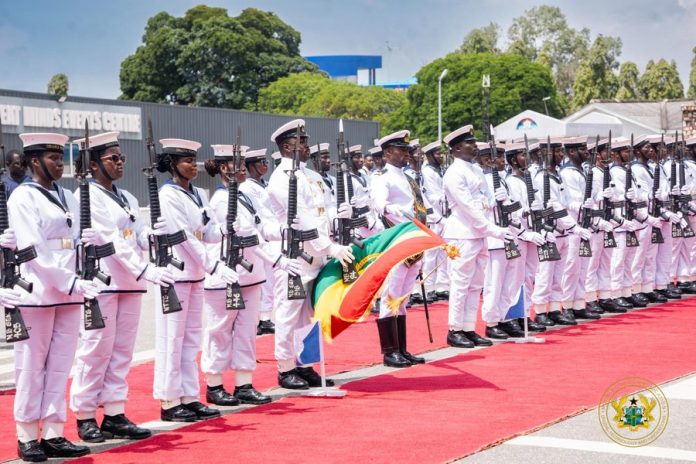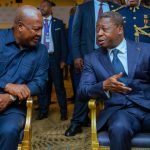The Minister for Communication, Digital Innovation and Technology, Sam Nartey George, has called for a review of the maximum age for enlistment into the Ghana Armed Forces, arguing that the current limit unfairly disqualifies capable and physically fit individuals in their 30s.
His remarks come in the wake of the ongoing Ghana Armed Forces recruitment exercise, which has generated debate over the eligibility criteria, particularly age restrictions.
In a post on X (formerly Twitter) on Wednesday, October 8, 2025, Mr. George said Ghana must modernise its enlistment policies to reflect changing times and opportunities for citizens eager to serve.
“I honestly believe it is time for our beloved nation to re-examine the maximum age for enlistment into our military services,” he wrote.
“There are people in their 30s who are physically fit and sound enough to serve their nation. We must not deny them this opportunity simply because of their age. There is precedence across the world. I believe an upper limit of 35 years would serve our young people better. Let’s nurture their dreams and not kill it.”
Adding his voice to the conversation, Majority Whip and MP for South Dayi, Rockson-Nelson Dafeamekpor, also took to X to support the call.
He revealed that many party supporters had raised concerns about the current age limit and shared comparative data showing that several countries—including Benin, Côte d’Ivoire, Togo, Nigeria, and even the United States—allow enlistment well into one’s 30s or beyond.
“In Ghana, we can extend our age limit to say 35 or even 40 years, depending on medical fitness and non-combatant roles. We need new ways of doing things. For God and Country,” Mr. Dafeamekpor posted.
Both lawmakers argue that expanding the age limit would not only open opportunities for more Ghanaians but also strengthen the Armed Forces with experienced and motivated recruits.
The debate comes at a time when the military is recruiting new personnel amid concerns about fairness, inclusivity, and the need to modernise recruitment standards to meet evolving national security needs.
























































![[FREE FREE MONEY] Predict and Win a Guaranteed GH¢200 From Us EVERY WEEK](https://wordpress.ghanatalksradio.com/wp-content/uploads/2022/02/Predict-and-Win-Final-09-03-2021-218x150.jpg)
![[Predict & Win – 8th/Oct.] WIN A Guaranteed ¢200 From Us This Week](https://wordpress.ghanatalksradio.com/wp-content/uploads/2021/10/maxresdefault-16-218x150.jpg)
![[Predict & Win – 2nd] WIN A Guaranteed ¢200 From Us This Week](https://wordpress.ghanatalksradio.com/wp-content/uploads/2021/09/maxresdefault-50-218x150.jpg)
![[Predict & Win – 25th] WIN A Guaranteed ¢200 From Us This Week](https://wordpress.ghanatalksradio.com/wp-content/uploads/2021/09/maxresdefault-36-218x150.jpg)
![[Predict & Win – 18th] WIN A Guaranteed ¢200 From Us This Week](https://wordpress.ghanatalksradio.com/wp-content/uploads/2021/09/maxresdefault-23-218x150.jpg)










![[National cathedral] See full list of churches that have contributed since 2018](https://wordpress.ghanatalksradio.com/wp-content/uploads/2020/09/Ghana-National-Cathedral-GhanaTalksRadio-100x70.jpg)



